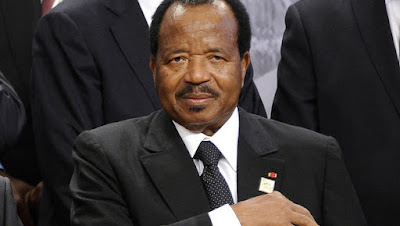The full report is available in: French.
EXECUTIVE SUMMARY AND RECOMMENDATIONS
In Cameroon, the rise of Christian revivalist (born again) and Muslim fundamentalist movements is rapidly changing the religious landscape and paving the way for religious intolerance. Fundamentalist groups’ emergence, combined with communal tensions, creates a specific risk in the North and increases competition for leadership of the Muslim community: such competition has already led to local conflicts.
*President Paul Biya of Cameroon
Moreover, the various religious groups have negative perceptions of each other. The state and the mainstream religious organisations’ response to the emerging radicalism is limited to the Boko Haram threat and therefore inadequate, and in some cases carries risk. A coherent and comprehensive response has to be implemented by the government and religious organisations to preserve religious tolerance and to avoid the kind of religious violence seen in neighbouring Nigeria and the Central African Republic.
Unlike these two countries, Cameroon has never experienced significant sectarian violence. However, the emergence of radical religious groups risks destabilising its climate of religious tolerance. Traditional Sufi Islam is increasingly challenged by the rise of more rigorist Islamic ideology, mostly Wahhabism. The current transformation is mainly promoted by young Cameroonian Muslims from the South, whereas the Sufi Islam of the North, dominated by the Fulani, seems on the decline. These southern youths speak Arabic, are often educated in Sudan and the Gulf countries, and are opposed both to Fulani control of the Muslim community and to the ageing religious establishment. Disagreements between Sufi leaders, traditional spiritual leaders and these newcomers are not only theological: the conflict between “ancients” and “moderns” is also a matter of economic and political influence within the Muslim community.
These changes have divided Muslim communities and already degenerated into localised clashes between Islamic groups. Fundamentalist groups’ growth in the North, combined with local communal tensions, is a potential source of conflict. In the South, the competition between Sufi members and Wahhabi-inspired groups over leadership of the Muslim community will increase and could lead to localised violence.





